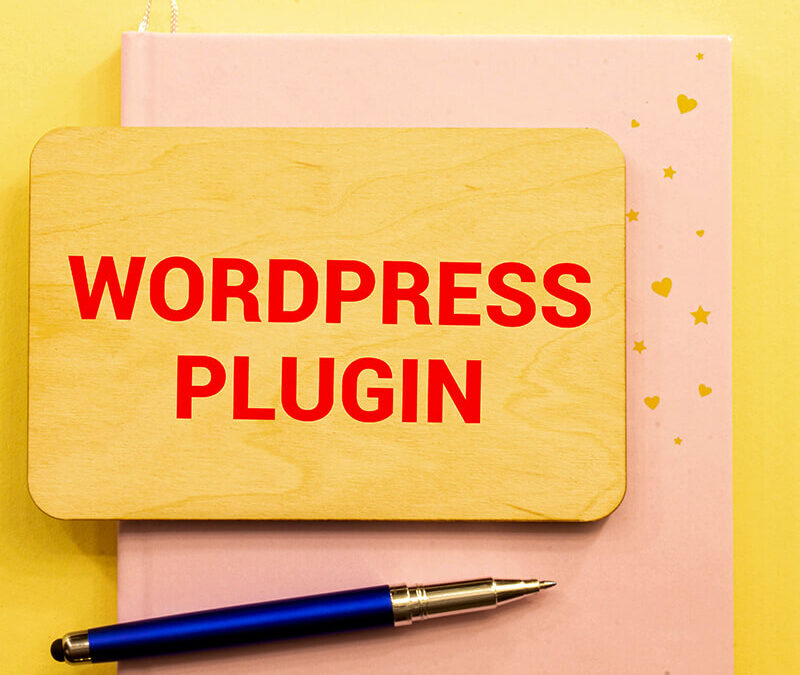What is a plugin?
Before we even go into the pros and cons, first of all, it’s important to understand what a plugin actually is.
A plugin is a piece of software that can be installed on your website to expand its functionality. Plugins can be uploaded to your website and quickly configured to give you functionality that would otherwise take developers a long time to create from scratch. They are what the name implies, something you can “plug” into a site to increase its capabilities without having to write custom code.
A good comparison is that of an operating system on your smartphone. Out of the box, the phone gives you basic functionality, however there’s a good chance you added apps to customize what it could do. For example, you may have added a social networking app such as Facebook, or Photoshop to edit images. Maybe you downloaded Chrome or Firefox because you don’t like the built-in web browser that came with your phone, or maybe you installed a few games. The options are endless. The same goes for WordPress plugins—they provide developers with pre-built functionality that enhance the websites they are building.
The Pros of WordPress plugins
Plugins offer several benefits to developers and website administrators, including:
They save time. The main reason so many developers use plugins is because they save a lot of development time, which in turn can save on a website’s overall budget. With over 60,000 plugins currently in WordPress.org’s library, developers have access to plugins for virtually anything they need. This can range from adding complex functionality like e-commerce or multi-language capabilities to smaller updates like giving site administrators the ability to add Google Analytics to a site without touching a single line of code.
Reliability. Plugins have become so essential to WordPress development that many of them are created and managed by reputable companies who regularly update them to fix bugs and improve security. Many plugins offer different levels of functionality depending on your needs, with a free version for the basic functionality and a paid version for more advanced features. While this does mean that plugins can incur a cost, they are typically less than 80 GBP which may be far less than what you would spend for developers to create that functionality themselves. And because you pay for these plugins, the companies that develop them have a lot of incentive to keep them updated.
Flexibility. Plugins provide developers the flexibility to customize site features and functionality. Most plugins allow some settings to be turned on and off and styles such as fonts, colors, and sizes to be changed to match the rest of the site. And, if you ever want to get rid of a plugin, it is a straightforward process to remove it from your site.
What about the cons of WordPress plugins?
They might conflict with each other. While this happens extremely rarely, it can happen, and if it does, it’ll be a nightmare to troubleshoot. And because plugins are so convenient it can be very easy to rely on them too much. So adding a million plugins isn’t recommended as they will slow your website down and cause conflicts. This could result in broken functionality or even your site going down. We recommend using only the plugins you really need and testing the site each time you add a plugin to make sure they all get along.
They can slow down your website. Plugins can negatively affect page speed because they usually require additional CSS and JS (JavaScript) files to be loaded on the website. That means your site has to load more assets each time a user visits the page. Keep adding plugins and those assets can add up quickly and take the page longer to load. This is another reason to stick with only the essential plugins and leave your developers to do the rest.
They can limit functionality. The reason why you’re going with a plugin is to avoid having to pay for custom development, right? Well, that removes the custom out of the equation. You will more than likely find a plugin that does exactly what you need, since they are so many out there. But maybe it won’t be exactly what you were looking for, and these things never happen with bespoke development. With bespoke development, you get exactly what you ask for and what you need.
Free vs. Premium
If the plugin offers different levels of access, decide whether you want the free version or the paid version. Learn more about the payment schedule so you know whether this is a one-time purchase or an annual payment. We recommend that our clients pay for all their plugins directly with the provider so they have total control over the plugins at all times.
Conclusion
Deciding which plugins to use on your site is a very important process that you and your web developers need to go through. You can’t just choose any random old plugin and hope that it’ll do exactly what you want it to do. This is why you have to do some research first.
The truth is that plugins have become an essential part of a WordPress developer’s toolkit and help to enhance the experience for users and administrators, and honestly, WordPress would be an entire different thing without so many plugins to choose from.

